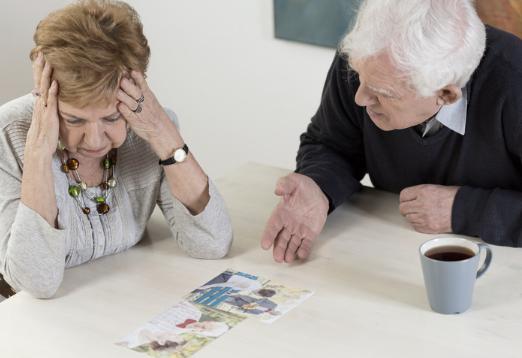Anger is an emotion characterized by hostility toward someone or something you feel has been done intentionally. Uncontrolled fury can cause serious problems.
Anger does not occur in all elders but in some due to health issues that can affect the emotional and mental state. Anger affects not only causes weary or painful conditions but also can affect physical health. During the rage, two hormones, epinephrine, and cortisol, are released in the body, activating a state called fight-or-flight. This state and excessive anger can cause a physiological response in the body that causes increased heart rate, elevated blood pressure, and tension in the muscle. If such negative emotions occur often, this can lead to cardiovascular damage.
Causes
Following are the causes of anger issues in old age people such as:
* The decline in cognition and dementia the elder gets angry when they don’t recall a word, sentence, or what they are talking about.
* Anger, frustration, anger, anxiety, and confusion all occur in dementia.
* If they have any physical distress or stiffness and can’t describe it verbally, they may show their pain in anger.
* Elders mostly feel left out or get bored, and boredom can make them have negative thoughts, so they act out.
As they get old, they can control anger on their own at the early stages, or you can make them get rid of this issue by following ways:
* Recognize the trigger
Try to pinpoint the trigger or the root cause that is causing severe anger attacks in your elderly, or an elder can realize it on their own.
* Mindfulness
As you grow older and get angry over small things, try to stay calm. This will aid you in distancing from the impulse, and you can think about what action to take.
* Meditation
Meditation keeps you healthy mentally and physically and aids you in avoiding anger issues. Try some yoga or deep breathing exercises.
* Make them physically active
Movement of any type, such as exercise, walking, swimming, or any physical activity, helps manage anger. If you feel your temper is blazing, go for a walk.
* Develop Encouraging communication
Try to make constructive communication with yourself to deal with anger. Communicate with yourself before problems shoot up. Communicate with your elders. Always listen to what they want to tell you.
* Focus on the problem instead of the person
Try to evaluate the problem or the consequences of their anger instead of rebuking them. Obey them, and never underestimate your elders.
* Lifestyle changes & Therapy
Take them to a therapist; if they are not opening up to you, take them to a therapist. Lifestyle changes can help manage anger issues, but if your elderly have excessive anger issues and you can’t control them, take them to a consultant or a therapist.
* Promote Socializing
Keep your elders from getting along. Loneliness, abandonment, or unhappiness raise rage in people, especially elders, as they feel left out and useless. Make them feel special and as if their existence is a blessing. Invite them to some social activities or enhance social interaction among elders.
Conclusion
Anger is an emotion that brings negative feelings and thoughts into your mind. Some elders face anger issues that affect their physical, mental, and emotional health, as anger does not occur in all elders but in those with some cognitive or physical disorders. Elders can do anger management, or you can handle their anger. If the issues are out of control, get them a therapist.

